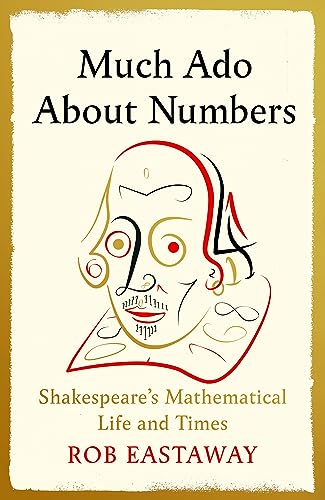What do you think?
Rate this book


Discover the extraordinary mathematical world of Tudor England.
What's the connection between Shakespeare and maths? A lot as it turns out.
Shakespeare grew up in a time of remarkable mathematical innovation. From astronomy to probability, music to multiplication, new mathematical ideas were taking off — and much of this was reflected in his work. In this highly engaging book, award-winning author Rob Eastaway explores the surprising and entertaining ways that maths and numbers cop up in Shakespeare's plays.
Find out how Tudors multiplied, why Shakespeare never ended a line with the word orange, and why dice-playing was a serious hazard for the unwary. With historical asides about games, optics, astronomy, music and magic, you will never think about maths, history or Shakespeare the same way again.
216 pages, Hardcover
First published September 10, 2024